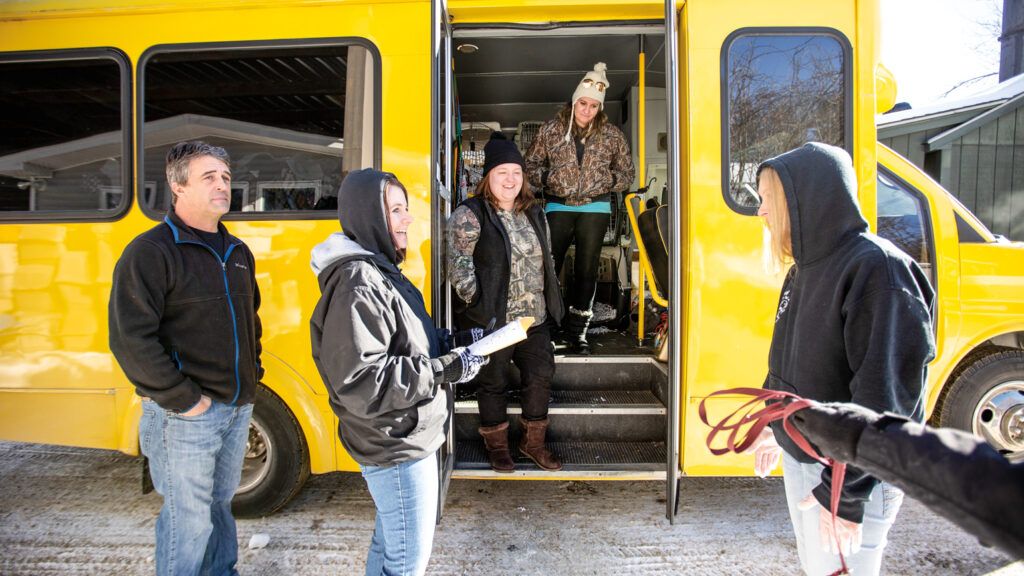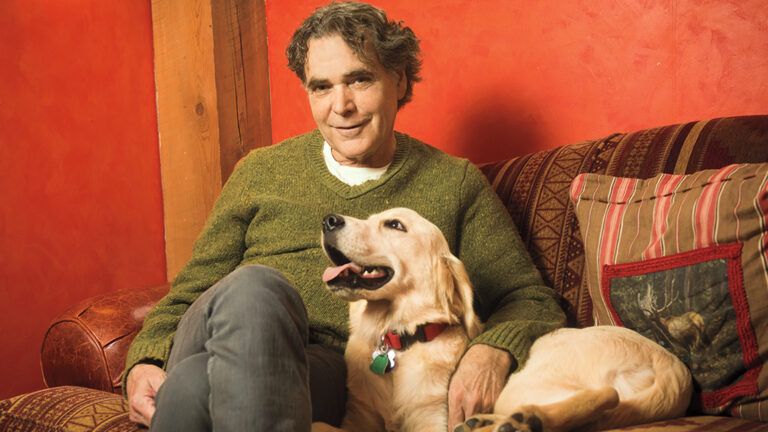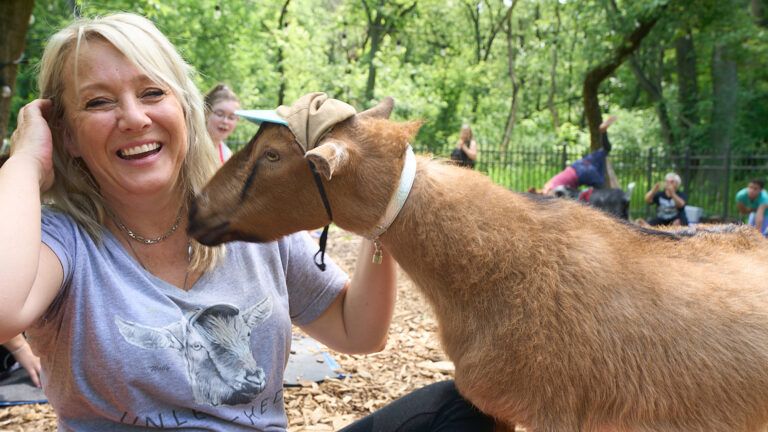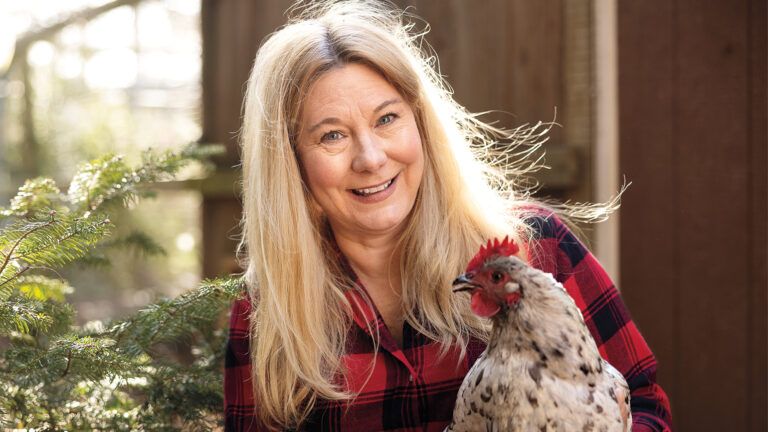Sabrina Black lets out a worried sigh as she and her driving partner, Elaina Rodriguez, study the weather forecast. It’s a Sunday morning in January, and they are planning to drive from Beaumont, Texas, to Sterling, Massachusetts, a grueling 1,750-mile journey. Forecasters predict that the two will encounter ice, snow and blizzard conditions as their route turns northward. Black, a native Texan, has never navigated icy roads. Neither has Rodriguez, a veterinarian who recently moved from Australia. But the women aren’t worried for themselves. It’s the precious cargo they’re carrying in their shuttle bus that concerns them: 19 dogs on their way to new homes.
Black and Rodriguez are volunteers for Hearts 2 Homes, a Beaumont Pets Alive program that transports animals slated for euthanasia at the overpopulated city shelter to rescue partners all over the country. Veterinarian Kelley Kays founded the nonprofit in April 2018 with the goal of making Beaumont a no-kill city—a goal that was achieved last December. At least 90 percent of the animals entering the shelter were saved, thanks in large part to these transports.
Transporters work in teams of two. Before they leave Beaumont, the volunteers are informed about every animal—all vaccinated and healthy—and their needs. Each one is tagged and has an individual kennel. Each team has one volunteer who’s a veteran transporter. In this case, that’s Black, a veterinary technician.
Icy conditions would put the transporters in a real bind. Being stuck on the side of the road with 19 dogs isn’t an option. So the women decide to leave at 4 P.M., six hours later than planned, hoping that the bad weather will pass.
“Driving straight through, the trip would take 26 hours,” says Black, who loves sharing stories about the animals she’s helping with her three-year-old daughter. “But we stop every four hours to feed the dogs and walk each one individually.” Parts of their route—bumpy, winding two-lane roads in Louisiana and Mississippi—slow them to 30 miles per hour. And when you factor in stops for gas and food for the drivers, it tacks on about 10 hours to the trip.
The long haul doesn’t seem to bother the dogs, though. They sleep most of the ride. “I think the animals stay calm because they know they’re going somewhere safe, where they’ll be loved,” Black adds.
The transporters take a detour through South Carolina to assess weather conditions ahead and stop at a horse ranch owned by a friend of Kays’. Four hours later, after the dogs have frolicked on the ranch, the forecast looks favorable. Black and Rodriguez reload their charges into the bus. But just as they are about to pull out, the ranch owner runs after them. “Wait!” she hollers. “Here’s my adoption fee. I want Baloo!” She’d fallen in love with the older blue heeler mix and couldn’t bear to part with him.
Around noon on Tuesday, 44 hours after leaving Beaumont, the bus pulls into snow-covered Sterling. Rescue partners there help unload the animals and get them settled in the shelter. Many have already been adopted and will meet their forever families soon.
“It’s bittersweet to see the dogs go,” says Rodriguez, who bonded with Matilda, a senior blue heeler, on this trip. “But we saved 19 animals.” Exhausted, but with full hearts, Black and Rodriguez climb into the bus to head back to Beaumont.
This transport went smoothly, but some Hearts 2 Homes drivers have run into dangerous situations. Driving the group’s larger vehicle, a truck with a trailer, Candice Wooley and Cody Stewart, who travel together often, broke down on a blind curve near Bozeman, Montana, with 57 cats in tow. Another time, in what Stewart refers to as a “hairy” adventure, the pair drove through steep mountains during a blizzard and were hit with a nor’easter on their way to Massachusetts.
It takes special people to do this work, Wooley says. “It’s dirty; it’s noisy; you’re surrounded by excrement and saliva.” It’s not for everyone, but she finds it fulfilling. She was burned out from working 60-hour weeks at a veterinary clinic, and the long drives gave her much-needed time to reflect.
Stewart served on the first transport, funded by Kays, in the summer of 2017 before Hearts 2 Homes became official the following year. He had been laid off from his job as the captain of an oil-field supply boat and was dealing with heartbreaking family problems. “Transporting was my escape at first,” he says, “but it’s changed my attitude. It’s become a mission. Transporting these animals has given me purpose. We’re not just saving them, we’re saving ourselves.”
Hearts 2 Homes maintains a list of about 15 volunteers who are willing to travel. When a transport is scheduled, word goes out and whoever can make the trip signs up. Take a week off, drive long distances and go without decent food, sleep and showers? These volunteers don’t hesitate. “It’s all about the animals,” Black says. “It’s so fulfilling to know you’re giving them a chance for a good life. I’m proud that 1,144 animals in Beaumont were saved in 2018 through transport and adoption. I’ll do this as long as I can. Each animal is worth it.”
Did you enjoy this story? Subscribe to All Creatures magazine.





